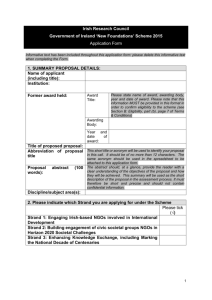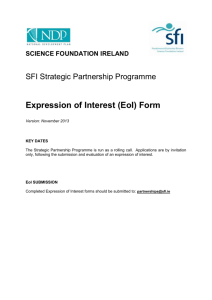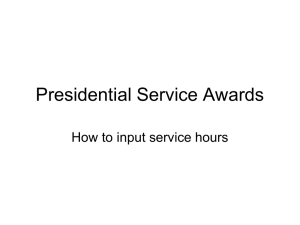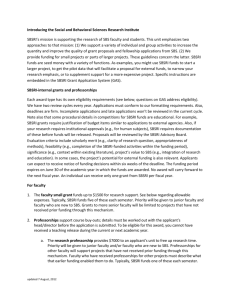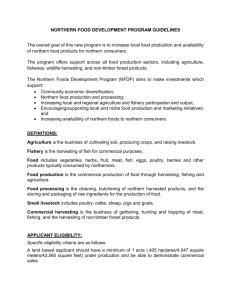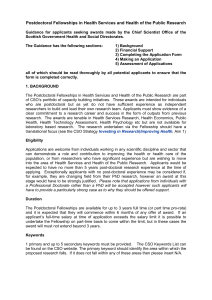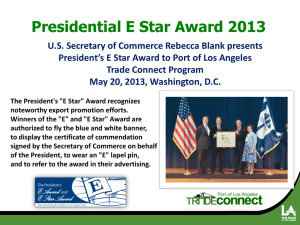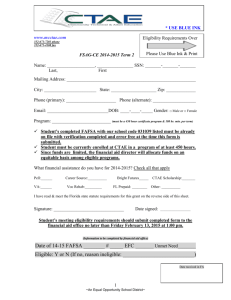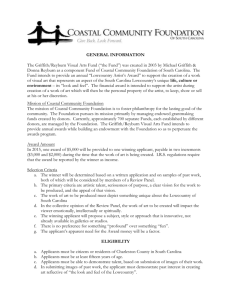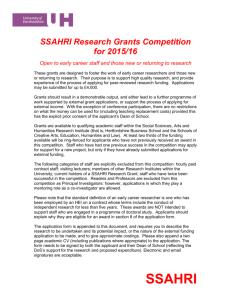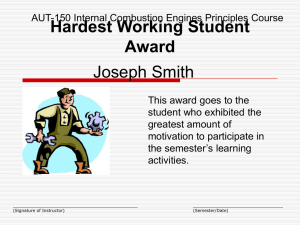Eligibility criteria
advertisement
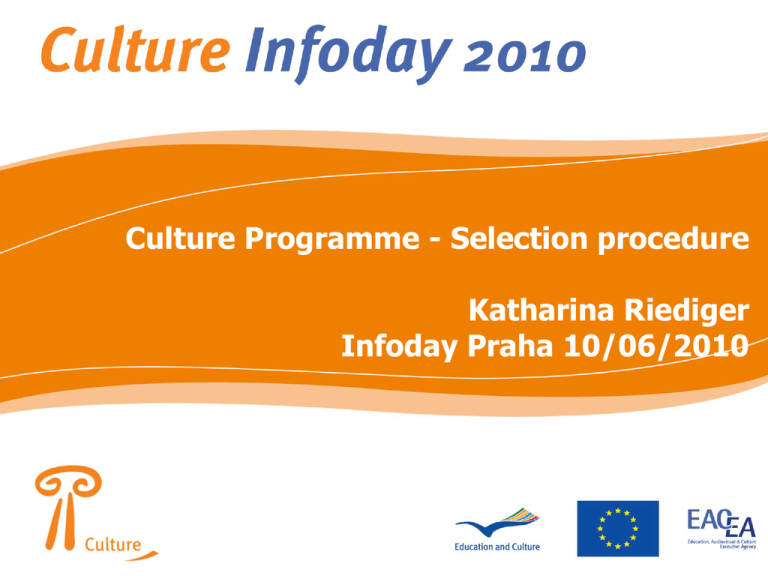
Culture Programme - Selection procedure Katharina Riediger Infoday Praha 10/06/2010 3 categories of criteria 1. Eligibility criteria 2. Selection criteria 3. Award criteria Eligibility criteria 1.The purpose is to check compliance with « formal criteria » 2. Examples: • Submission before the deadline • The main activity of the applicant organisation is in the field of culture • The minimum number of partners in a cooperation project is met Eligibility criteria Status of applicant Number of partners and countries Duration and dates of project EC grant requested Signed annexes!!! • declaration • budget • mandates • cooperation agreement Selection criteria 1.The purpose is to check that the applicant has the operational and financial capacity to carry out the project 2. Examples: • Are the CVs of the main participants in the project relevant? Do they demonstrate that they have the necessary skills to implement the actions foreseen? • Do the accounts of the applicant organisation demonstrate that it has the necessary financial means to provide matching funds? Selection criteria Capacity to carry out the project Operational Capacity: - Activity Reports - CV’s Financial Capacity: - Official Accounts - Financial Capacity form All project partners Coordinator only Award criteria 1.The purpose is to assess the quality of the applications 2. Examples: • What is the European added value of an application? • What is the impact of an action? Is it sustainable? • Does the communication plan allow an adequate dissemination of the results? Award criteria Qualitative and quantitative indicators to demonstrate the applicant’s ability to match the objectives of the strand Experts’ evaluations are based on these criteria Take your time to explain in the application how your project matches the objectives Who does what? 1. Eligibility and selection criteria are assessed by the staff of the Executive Agency 2. Award criteria are assessed by independent external experts 3. An evaluation committee checks and validates the selection process 4. The Decision to award grants is taken by the Director of the Executive Agency for most of the strands What is the selection process? 1. Applications must comply with all eligibility criteria. If they don’t, they are rejected 2. Applications must fulfill the selection criteria. If they don’t, they are rejected 3. Applications are assessed and scored in relation to the award criteria. The best ones are financed, within the available budget Who are the experts? 1. A call for manifestation of interest has been published by the Agency in 2007 2. A data base of experts is available 3. Experts are chosen according to their professional experience and language skills 4. The names of the chosen experts are published at the end of the year 5. At least 30% of the experts are changed each year Principles to be respected by the experts - No conflict of interest - Confidentiality How is the evaluation organised? 1. A panel of experts is convened in Brussels 2. Each application is assessed by two different experts, working independently 3. A consensus meeting is organised between the two experts: they have to agree on common score and comments 4. A quality-check of the evaluations is carried out by the staff of the Agency 5. The evaluation committee checks and validates the evaluations and the final ranking Information of applicants 1. Applicants are informed of the outcome of the selection process. 2. They receive the evaluation summary report drawn up by the experts. Conclusion (1) Main principles of the selection process: 1. Equal treatment between all applications 2. High professional skills of the experts 3. No conflict of interest and confidentiality 4. Transparency Conclusion (2) How long does it take? 4 to 5 months between the submission deadline and the information of the applicants 1 to 2 months between selection and first payment Conclusion (3) : A good application The project description must be well written Make sure the budget is consistent with the project activities and timetable Tasks and roles of each partner must be clearly described Answers to award criteria must be pertinent Prepare documents (mandates & cooperation agreement) on time Conclusion (4): where to find information Programme Guide Applicants Guide for cooperation projects Cultural Contact Points Mailboxes: Strand 1.1: eacea-p5-multiannualprojects@ec.europa.eu Strand 1.2.1: eacea-p5-cooperationprojects@ec.europa.eu Strand 1.3.5: eacea-p5-thirdcountries@ec.europa.eu Check also the lists of selected projects of the previous years THANK YOU FOR YOUR ATTENTION!
